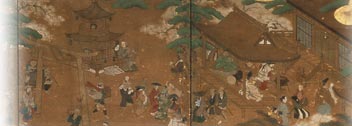Special Lecture by ZHANG Yihe “MEI Lanfang and Others: The Fate of Chinese Traditional Theatre in the Modern World”
Outline
| date | May 29, 2010 (Saturday), 15:00–17:30 |
|---|---|
| Venue | Classroom 102, Building 14, Waseda Campus |
| Organizer | Eastern Theatre Research Course |
| outline | The Theatre Museum Global COE Eastern Theatre Research Course translated and at the end of the 2009 academic year published ZHANG Yihe’s book Ling ren wang shi (Actors' histories) under the title Kyōgeki haiyū no nijūseiki (Peking Opera actors in the 20th century). The author, ZHANG Yihe, was born in Chongqing in 1942; after graduating from the Department of Dramatic Literature at the Chinese Traditional Drama Academy , she served first in the performing arts division of the Sichuan Provincial Sichuan Opera House , then in the Traditional Drama Research Institute of the Chinese National Academy of Arts (1979–2002). In addition to her career as a researcher, as the daughter of ZHANG Bojun who was regarded as China’s number-one rightist during the 1957 anti-rightist campaign, she was sentenced to ten years in prison for counterrevolutionary crimes during the Cultural Revolution – she was rehabilitated in 1978 – and led a hard early life. |
Details
What arose out of this personal history was the book Ling ren wang shi, which deals with the unhappy fate of eight Peking Opera actors; in it she gives expression to the actors’ experiences of being at the mercy of 20th-century Chinese politics by superimposing them with her own. The writing style that got her in trouble is forceful; this coupled with her experiences as the daughter of the number-one rightist resulted in a publication ban on Ling ren wang shi in mainland China. On the other hand, ZHANG Yihe’s style is very highly regarded, and thanks to her keen critical mind she is considered as one of the intellectuals who typifies those speaking out for freedom of speech in China today.On the occasion of the publication of the translation, the Eastern Theatre Research Course made plans to invite Ms. ZHANG Yihe, and held a special lecture, which it sponsored in a form that was open to the general public.
Under the title “MEI Lanfang and Others: The Fate of Chinese Traditional Theatre in the Modern World,” Ms. ZHANG spoke freely about MEI Lanfang, who was among the eight actors featured in Ling ren wang shi, including matters previously regarded as nearly taboo. She related one startling episode after another, quite candidly, of stories that though based on the latest research findings would not normally be made public: such things as the fact that before he made his name as an actor he was one of the boy singers who served at banquets at a parlor house named Jinghe House; that he was exposed to criticism not long after the founding of the new China for presenting the idea of "Yi bu bu huan xing" (Evolve, but Remain Based in Traditional Style); and that thereafter he did not make any statements without having them checked first by top-ranking officials. With regard to traditional theatre in modern China, which was the subtitle of her talk, she described the extent to which government control, right down to the present day, has weakened traditional theatre, and she interspersed scathing criticism of contemporary Chinese society that frequently evoked applause from the audience, which included many Chinese.
Following the lecture, HATANO Maya, a GCOE researcher who acted as the interpreter for this event, gave a screening and explanation of a film of MEI Lanfang shot at the Haiyūza during his visit to Japan in 1956 but never shown publically. Made a year before the beginning of the anti-rightist campaign, the film was confirmed to be a valuable record that straddled the borderline between the old and the new China. In the third session that followed, Ms. ZHANG held a three-way conversation with project leader KODAMA Ryuichi and OKAZAKI Yumi; they engaged in a lively discussion of such topics as actors and audiences in China and Japan and the relationship between theatre and the political regime. A large audience filled the 300-seat classroom that served as the meeting room and brimmed with enthusiasm from start to finish. It was such a rich and rewarding event that many voiced the opinion that the allotted time from the lecture to the three-way discussion period had not nearly been enough. The Eastern Theatre Research Course plans to remain in contact with ZHANG Yihe and continue scholarly exchanges.


